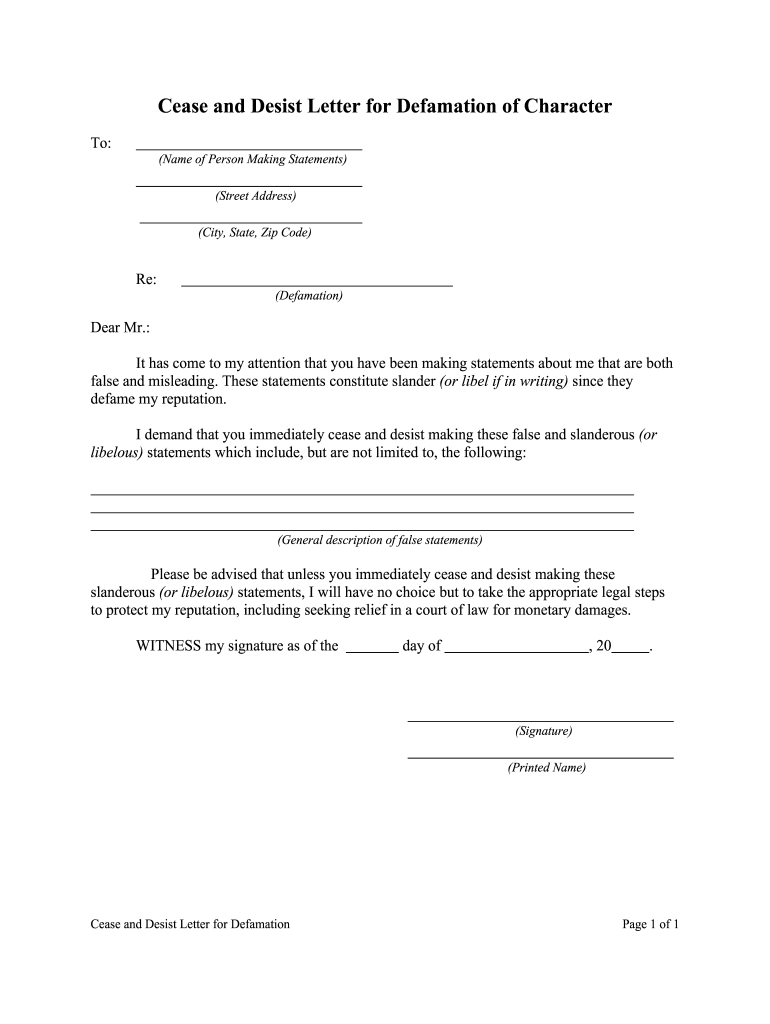There are several important elements of a defamation letter. These elements must be included, including the sender's full name and address. The letter should outline what actions the sender must take in order to stop the defamatory statement, and it should refer to appropriate law to support your claim. For example, you must state that your claim is "abusive" and "false."
The letter must also state the amount of damage caused by the false statements, including the damages. This damage could be reputational, economical, or any other kind. The letter should also state how long the recipient must take corrective action, such as removing objectionable material. When writing the letter, you must remember to include your full name, contact information, and any other pertinent information. Otherwise, you risk facing legal action. It is important to state the exact date of publication, because this can help you determine how much time the sender has to take action.
The defamation letter must be accompanied by a sample of the defamatory content or statement. It must also state the deadline for the offending party to withdraw the statement. Finally, the letter should include the demands made by the sender. The defamation letter can be sent via email or letter. This can also include a sample of the offending content or article copy. Once the document is complete, you need to wait for the other party's response.
Defamation letters have many uses. They are legal documents intended to stop the offending party from making false statements. While a cease and desist letter can make a person feel better about themselves, the letter also protects your business's reputation. It can be an extremely powerful tool for preserving your business's reputation and attracting new clients. The link below contains a sample Cease and Desist Letter. It is a great start to creating a successful Cease and Desist Letter.
The most common way to stop a defamation lawsuit is by proving that the statement was actually published. This publication can include anything from an article online to a news broadcast. Even if the person simply repeats the statement over, it may still be defamatory. So if you've read a defamation letter, take action today to defend your reputation and avoid the damaging consequences it may have.
Defamation laws vary from state to state, so it is important to find out if you can pursue legal action. While it is possible to sue someone for a defamation of character, the statute of limitations for such lawsuits varies. Defamation of character attorneys can provide guidance regarding the statute of limitations for such cases. While the statute of limitations varies from state to state, if you have proof that a false statement was made about you, it's vital to protect yourself from further damage.
The lawyer for the former chief medical examiner Dr. Anny Sauvageau is suing for $7.5 million after being dismissed from her job. During the trial, she has not spoken to the media since her resignation eight years ago. She wrote to Denis on Wednesday afternoon. Shewchuk wrote the letter as a junior lawyer at Rose Sanders Law Group . Both Sauvageau and Denis' lawyer are in the process of setting a date for a hearing.








